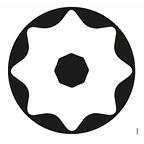Journalism Built on Trust
Observations by Heather Krause, Orb Media Chief Data Scientist
At Orb Media we believe that journalism has a unique power and responsibility to shape our perception of the world around us and our role in it. And with that comes the need to provide transparency to our readers.
The Trust Project is an international consortium of news organizations collaborating to use transparency to build a more trustworthy and trusted press. Orb Media became a Trust Project collaborator as part of our commitment to producing quality, fact-based journalism that informs individuals globally.
The project requires participating news organizations to display “Trust Indicators” with every story. These indicators provide useful information that allows readers to assess the ideas, work, and materials that go into each piece of journalism. The development of the specific indicators was guided through a multi-year collaborative process involving dozens of international journalists, ethics experts, information technology experts, and lay people and consumers of media.
Digital platforms, such as Google, Facebook, and Bing, can use machine-readable signals from the Trust Indicators to surface quality news to their users. It is an open source project so that the materials produced by the collaboration are available to all legitimate news companies that agree to abide by the group’s commitments and Trust Protocol.
As Chief Data Scientist for Orb Media what I love about the Trust Project is that it isn’t a set of specific values that decide for the reader what is trustworthy and what is not. It doesn’t assign any rating to articles that could be conceived of as biased towards certain worldviews.
The Trust Indicators are behind-the-scenes glimpses into the article for the reader — how the reporting was done, exactly where to send corrections if something is wrong, what location the reporter lives in so you can see if they are local to the issue, and more. Instead of assigning values to what is trustworthy and what is not — the Trust Project allows all readers to use the indicators” to determine for themselves what is trustworthy.
Another innovation: these indicators are clearly displayed on the pages of all the collaborating news organizations, as well as being built into the background of the digital stories. This means that bots and spiders which read the code of the stories can help search engines, social media sites and more use them effectively.
For example, the “Type of Work” Indicator can help a human reader determine whether the article they are reading is a piece of investigative journalism, an opinion column, or an explainer article. The same indicator can tell a search engine bot which kind the piece is and where it would be most appropriately displayed based on what type of work it is.
To my knowledge, the Trust Project is the first of its kind to have a standardized background language that can inform both human and technology about the contextual information that surrounds a piece of journalism.
Orb Media is honored to be among more than 120 news sites around the world showing the Project’s Trust Indicators. In the United States and Canada, the Trust Indicators can now be seen on sites hosted by the Bay Area News Group, CBC News, Heavy.com, The Toronto Star, TEGNA, Voice of Orange County, The Walrus and the Wisconsin Center for Investigative Journalism; and in Europe, on those of Corriere della Sera (Italy), El País (Spain), Il Sole 24 Ore (Italy), Kathimerini (Greece), SciDev.Net (International), and SkyNews (United Kingdom). Companies in the process of showing Trust Indicators include Canadian Press, FRONTLINE PBS (U.S.), El Mundo (Spain), Star Tribune (U.S.) and Zeit Online (Germany).
The Trust Indicators have been available since last year on sites owned by the BBC (United Kingdom), dpa news agency (Germany), The Economist (United Kingdom), FourFourTwo (United Kingdom) Globe and Mail (Canada), Hearst Television, Independent Journal Review, Mic, La Repubblica and La Stampa (Italy), Stuff (United Kingdom), Reach Plc (United Kingdom), and the Washington Post.
About Heather Krause
As Chief Data Scientist at Orb Media, Heather Krause focuses on finding, analyzing and communicating emerging trends that impact humans across the globe. Her mandate includes maintaining a wide journalistic perspective beyond conventional entrenched viewpoints. Leading the Data Science department at Orb, Heather finds hidden stories, provides an objective data backbone, and crafts beautiful clear explanations and visualizations of complicated issues. As Orb Media situates itself as a leader in information age journalism, Heather leads its team in maintaining rigorous standards, cutting-edge methodologies, and highly creative approaches to what data journalism can be.
About the Trust Project
The Trust Project is a global network of news organizations building Trust Indicators and working with technology platforms to affirm and amplify journalism’s commitment to transparency, accuracy, inclusion, and fairness so that the public can make informed news choices. Led by award-winning journalist Sally Lehrman, it is hosted by Santa Clara University’s Markkula Center for Applied Ethics. Over several years, the Project interviewed people in the United States and Europe to find out what’s important to them when it comes to news and what makes a story trustworthy. Lehrman took that research and worked with top news leaders around the world to design and develop a digital system that meets those needs: the Trust Indicators.
